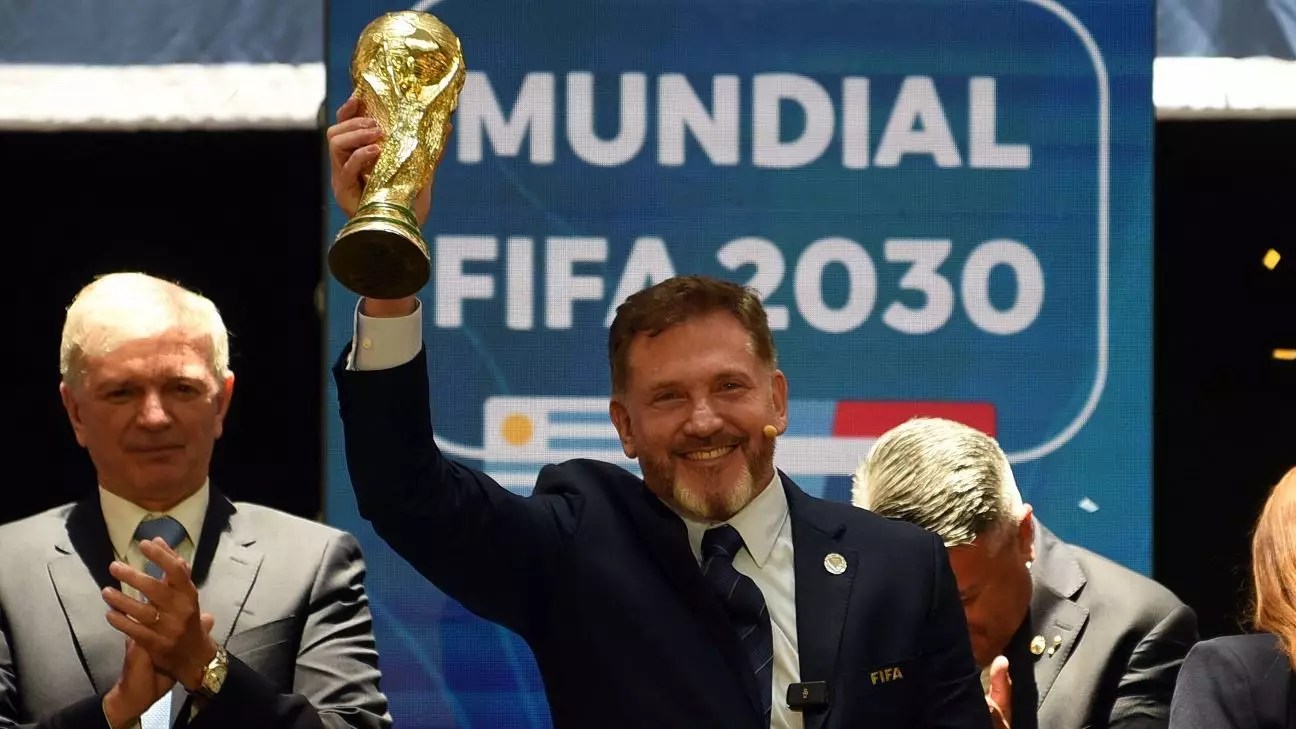In an ambitious move, Alejandro Domínguez, president of CONMEBOL, has proposed expanding the 2030 FIFA World Cup from 32 to an unprecedented 64 teams. Announced during CONMEBOL’s 80th Ordinary Congress, this proposal aims to commemorate a century of World Cup history uniquely. Domínguez emphasized that the centenary is a once-in-a-lifetime event, asserting the significance of making this tournament truly special. The notion of hosting a larger event resonates well with the idea of inclusivity, yet it raises several critical questions regarding the integrity of the competition.
The Allure of Inclusivity
A key argument supporting the expansion is the promise of inclusivity for all ten South American nations. The proposed change would essentially guarantee a slot for every CONMEBOL member, including Venezuela, who has yet to qualify for a World Cup. Domínguez articulated a vision where no nation is excluded from experiencing the grandeur of a World Cup. This sentiment aligns well with the ideal of global unity through sports. However, the underlying premise raises concerns about whether the true spirit of competition would be maintained when participation is afforded at the expense of meritocracy.
The Logistical Hurdles of a Larger Tournament
An expanded tournament would increase the number of matches from 64 to a staggering 128, doubling the logistical requirements for hosting. The 2030 World Cup is already set to be unprecedented with six host nations across three continents—Uruguay, Argentina, Paraguay, Spain, Portugal, and Morocco. While this ambitious geographic spread illustrates a commitment to international collaboration, the practicalities of accommodating such a large tournament could be overwhelming. Concerns about venue readiness, travel logistics, and scheduling become paramount, particularly when the stakes are as high as those in a World Cup.
Criticism and Concerns from the Soccer Community
Not everyone is onboard with this grand vision. UEFA president Aleksander Čeferin has expressed profound skepticism, labeling the expansion “a bad idea.” Detractors voice legitimate concerns that inflating the number of teams may dilute the quality of play and undermine the qualifying processes across various continents. In an age where the competitive spirit of soccer is celebrated, raising the bar for participation may inadvertently lead to a subpar spectacle, where only a fraction of the matches maintain the elite standard expected of such a tournament.
The Balance Between Tradition and Innovation
The idea of a 64-team World Cup for the centenary poses a fascinating dichotomy: preserving the traditional, competitive integrity of soccer while innovating for a more inclusive future. Soccer fans worldwide cherish the World Cup for its high-stakes drama and elite competition. Striking a balance between expanding access and ensuring quality is no small feat. As FIFA deliberates this ambitious proposal, it faces the crucial challenge of aligning the emotional passion surrounding World Cup tradition with a modern vision that caters to a global audience yearning for representation.
The 2030 World Cup represents not just a soccer tournament, but a significant cultural milestone. Whether it becomes a beacon of inclusivity or a diluted representation of the sport remains to be seen. The complex interplay of logistical challenges, competitive integrity, and the dreams of nations hangs in the balance as this audacious proposal unfolds.


Leave a Reply